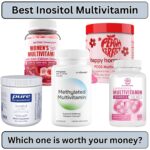
Nitric oxide is produced by nearly every type of cell in the human body and one of the most important molecules for blood vessel health.
It’s a vasodilator, meaning it relaxes the inner muscles of your blood vessels, causing the vessels to widen. In this way, nitric oxide increases blood flow and lowers blood pressure.
Supplements that increase nitric oxide in the body make up one of the most popular supplement categories today.
These supplements don’t contain nitric oxide itself. However, they contain compounds that your body can use to make nitric oxide and have been shown to provide many benefits for health and performance.
Here are 5 health and performance benefits of taking nitric oxide supplements.
1. Help Treat Erectile Dysfunction

Erectile dysfunction (ED) is the inability to achieve or maintain an erection firm enough for sex (1.Source).
L-citrulline is an amino acid that may help treat erectile dysfunction by increasing the production of nitric oxide (2.Source).
Nitric oxide is needed for the muscles in the penis to relax. This relaxation allows chambers inside the penis to fill with blood so the penis becomes erect (3.Source).
In one study, L-citrulline was found to improve erection hardness in 12 men with mild erectile dysfunction (4.Source).
Researchers concluded that L-citrulline was less effective than prescription drugs used to treat ED, such as Viagra. Nevertheless, L-citrulline proved to be safe and well tolerated.
Two other nitric-oxide-boosting supplements have been shown to treat erectile dysfunction — the amino acid L-arginine and French maritime pine bark extract.
In several studies, a combination of L-arginine and French maritime pine bark extract significantly improved sexual function in men with ED (5.Source, 6.Source, 7.Source, 8.Source).
When taken together, L-arginine and French maritime pine bark extract also appear safe (9.Source).
Summary Nitric oxide plays an important role in erectile function. Several supplements, including L-citrulline, L-arginine and French maritime pine bark extract, have been shown to increase levels of nitric oxide in men with erectile dysfunction (ED).
2. May Decrease Muscle Soreness
A form of L-citrulline called citrulline malate not only increases nitric oxide production, but also decreases muscle soreness.
Muscle soreness is an uncomfortable experience that tends to occur after strenuous or unaccustomed exercise (10.Source).
This soreness is referred to as delayed-onset muscle soreness and usually feels the strongest 24–72 hours after exercise.
In one study, 41 people were randomized to receive either 8 grams of citrulline malate or a placebo one hour before performing as many repetitions as possible on a flat barbell bench press (11.Source).
Those given citrulline malate reported 40% less muscle soreness at 24 and 48 hours after the exercise, compared to those who took the placebo.
Citrulline malate increases nitric oxide production, which increases blood flow to active muscles. In turn, citrulline malate is thought to increase nutrient delivery and clear waste products that are related to muscle fatigue, such as lactate and ammonia (12.Source).
However, a later study on the effects of citrulline after leg exercises did not find citrulline malate helpful for the treatment of muscle soreness (13.Source).
One explanation for this difference in findings is that the people in the leg exercise study were given 6 grams of citrulline malate, which is 2 grams less than the previous study.
Therefore, the ability of citrulline malate to decrease muscle soreness may depend on the dose and exercise. However, more research on this is needed.
Summary Citrulline malate is a form of L-citrulline that may help alleviate muscle soreness by increasing nitric oxide. The dose and type of exercise may affect the ability of citrulline malate to decrease muscle soreness.
3. Lower Blood Pressure
People with high blood pressure are thought to have an impaired ability to use nitric oxide in their bodies (14.Source, 15.Source).
High blood pressure occurs when the force of your blood pushing against the walls of your arteries is consistently too high.
Over time, high blood pressure can lead to health issues such as heart disease and kidney disease.
It has been shown that a diet high in fruits and vegetables decreases blood pressure and therefore lowers the risk of disease (16.Source).
This has led researchers to test the beneficial effects of certain compounds found in fruits and vegetables on blood pressure levels.
Nitrate
Nitrate is a compound found in beetroot and dark leafy greens like spinach and arugula.
When you consume nitrate, your body converts it to nitric oxide, which in turn causes blood vessels to relax and dilate, lowering blood pressure.
Many studies have shown nitrate may help lower blood pressure by increasing the production of nitric oxide (17.Source, 18.Source, 19.Source, 20.Source).
One review analyzed the effects of taking nitrate supplements on blood pressure in adults (21.Source).
Of the 13 studies analyzed, six found significant reductions in systolic blood pressure and diastolic blood pressure when participants took nitrate supplements (22.Source).
What’s more, another review of 43 studies found participants’ systolic and diastolic blood pressures decreased by an average of 3.55 and 1.32 mm Hg, respectively, after they took nitrate supplements (23.Source).
Flavonoids
Like nitrates, flavonoid extracts have been shown to improve blood pressure (24.Source, 25.Source, 26.Source).
Flavonoids have powerful antioxidant effects and are found in almost all fruits and vegetables (27.Source).
Scientists believe flavonoids not only increase production of nitric oxide but also decrease its breakdown, promoting higher levels overall.
However, nitrates have more research supporting their blood-pressure-lowering effects than flavonoids do.
Summary Vegetables and fruits contain several compounds, such as nitrate and flavonoids, that may help keep blood pressure under control by increasing nitric oxide levels.
4. Boost Exercise Performance
Nitric oxide is involved in many cell processes, including the widening of the blood vessels, or vasodilation. Wider blood vessels help increase the delivery of nutrients and oxygen to working muscles during exercise, thus enhancing exercise performance.
This has made nitric oxide supplements popular among athletes and recreational gym-goers.
These supplements often contain several ingredients that are said to increase nitric oxide, such as nitrate or the amino acids L-arginine and L-citrulline.
In many analyses, nitrate has been shown to improve exercise performance in cyclists, runners, swimmers and even kayakers (28.Source, 29.Source, 30.Source).
On the other hand, L-arginine has not proven to be effective for improving exercise performance in many studies (31.Source, 32.Source, 33.Source).
This is likely because most of the L-arginine that is ingested is metabolized or broken down before it gets a chance to reach the bloodstream, whereas L-citrulline is not (34.Source).
For this reason, L-citrulline is more effective than L-arginine at increasing nitric oxide and therefore exercise performance (35.Source).
Summary Supplements intended to increase nitric oxide are commonly promoted as performance enhancers. While the performance-enhancing benefits of L-arginine are minimal, nitrate and L-citrulline may be worthwhile.
5. May Help Manage Type 2 Diabetes
Nitric oxide production is impaired in people with type 2 diabetes (36.Source).
This leads to poor blood vessel health, which can lead to conditions like high blood pressure, kidney disease and heart disease over time.
Therefore, supplements that increase nitric oxide may have important implications for diabetes treatment and disease prevention.
One study found that when people with type 2 diabetes took L-arginine, their nitric oxide production increased (37.).
This increase in nitric oxide also led to increased insulin sensitivity, allowing for better blood sugar control.
Another study in 144 people looked at the effects of L-arginine on preventing or delaying the progression of type 2 diabetes (38.Source).
While L-arginine did not prevent people from developing diabetes, it did increase insulin sensitivity and improve blood sugar control.
But until more research is available, it is premature to recommend taking L-arginine supplements to treat diabetes.
Summary People with diabetes have impaired nitric oxide production, which can lead to harmful health effects. L-arginine has been shown to improve blood sugar control in people with diabetes, but more research is needed before it can be recommended.
Side Effects
Nitric oxide supplements are generally safe when taken in appropriate amounts (39T.Source, 40, 41).
However, there are some side effects to be aware of.
L-arginine taken in doses above 10 grams can cause stomach discomfort and diarrhea (42.Source).
Beetroot juice supplements can also turn your urine and stool a dark red color. This is a common but harmless side effect (43.Source).
Before taking any supplements to increase nitric oxide, consult your doctor or dietitian.
SUMMARY
Nitric oxide supplements are generally considered safe. However, there are some side effects to be aware of, including potential stomach discomfort and diarrhea, as well as dark red stool and urine.
The Bottom Line
Nitric oxide is a molecule that plays many important roles in human health.
Many supplements are claimed to increase nitric oxide in the body and provide impressive benefits for health and performance.
They usually contain ingredients like nitrate or the amino acids L-citrulline and L-arginine.
However, other supplements, such as French maritime pine bark extract, have also been shown to increase or maintain nitric oxide levels.




